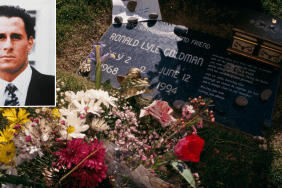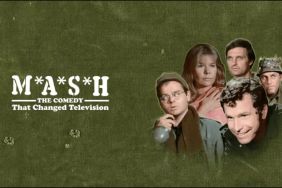Jane Akre
Ray Anderson
Mark Barry
Edwin Black
Carlton Brown
Chris Barrett and Luke McCabe
Noah Chomsky
Peter Drucker
Milton Friedman
Ira Jackson
Michael Moore
Steve Wilson
Howard Zinn
Story:
Based on Joel Bakan’s book “The Corporation: The Pathological Pursuit of Profit and Power,” this Canadian documentary takes an intensive look at the role of the corporation in America by looking at a few case studies and interviewing former corporate CEOs, investigative reporters and other professionals. The results of this study are often quite disturbing.
Analysis:
As Michael Moore’s Fahrenheit 9/11 reaches the largest audience for any documentary, America seems to be ready to learn the more hard-edged truths about the world around them. The Corporation, adapted for the big screen by author Bakan with directors Mark Achbar and Jennifer Abbot, takes Moore’s fight against the evils of the corporate world to a new level, creating an experience filled with a lot of information about every aspect of the corporate world and its effects on modern society.
Narrated by a sexy robotic voice which is much more pleasant to listen to than Moore’s nasal drawl, the documentary opens with the definition of a corporation as an entity whose primary goal is to make as much money as possible without concern for the community or environment. Since the U.S. government created laws that defined the corporation as having the same rights as a legal “person”, the filmmakers go through a point-by-point checklist with the help of psychologists to prove that the so-called corporate “person” suffers from enough mental disorder to be deemed psychopathic.
The impressive interviews, on a par with Owen Morris’ The Fog of War, are the heart of the film. They include a wide array of professionals from different walks of life including MIT professor Noah Chomsky, the subject of Achbar’s last documentary, former CEOs who have turned their backs on the corporate lifestyle, corporate spies and investigative reporters.
The movie’s most interesting interview subject is Michael Moore himself. Having made a name for himself with his work fighting the corporations, Moore talks about his experiences, even discussing events that followed his 1997 film The Big One, in which he challenged the head of Nike to visit the Indonesian sweatshops they employed. Even more ironic is Moore’s confession that he relies on a corporate studio to distribute his films, giving solid reasons for the logic, but it does date the interview to a time before his most recent film was dropped by said studio.
Some of the other subjects include an advocate against the unlawful use of child labor in third world countries, a commodities trader bragging about how he profited from the 9/11 attacks and the Iraqi war, and a pair of college students that sell themselves as corporate sponsors to the highest bidder. The film even gets into corporate marketing, both overt and subliminal. Despite the very obvious negative bias, the filmmakers are a lot more even-handed than one might expect, holding the corporation with the same regard that some people may hold the church. If you ever wondered why there was so much unrest and rioting at the Seattle World Trade conference in 1999-some of which is shown during one segment-you need look no further than this film.
Watching the effects corporate greed have on impoverished people, animals and the environment might bring you close to tears, but the real question is why much of this questionable corporate behavior isn’t reported to the American people? Maybe it’s because the news media is owned by corporations themselves? In one of the most unbelievable segments, two FOX news correspondents learn this the hard way, when they are told to change a story about cancer-causing chemicals in milk. Despite trying to appease the lawyers and management, they are fired, but when they file a whistle blowers suit against FOX, it is turned down in court because it deems that the “falsification of news isn’t against the law”.
Despite the number of serious topics and issues, there is still a healthy amount of humor. The movie is driven by analogies made in the interviews, which are brought to life with cleverly found media, movie clips, business school videos and the like. Another amusing scene involves a former Shell executive sitting down for tea with angry protesters who invade the privacy of his home to discuss their complaints. Things like that keep the movie a bit lighter, although maintaining a cynical edge.
The Corporation covers similar ground as Moore’s Fahrenheit 9/11 in showing the connections between corporate greed and the government. As a film, The Corporation far surpasses Moore’s effort both in tone and overall quality due to its focused assault of information. It flows better from beginning to end despite the slew of ideas to the brilliant editing by co-director Jennifer Abbot. The only gripe is that at almost two-and-a-half hours long, the movie is way too long. It may need that amount of time to be thorough, but it probably would require repeat viewing to fully understand and absorb all of the information on display.
The Bottom Line:
The Corporation is an informative and powerful effort to take what Michael Moore and Owen Morris have done with their work to the most logical extreme. Despite the amount of information, the film is far more effective in getting its point across than similar documentaries. It provides a few answers and possible solutions to the issues, showing a few third world situations resolved by people joining together to fight the corporations. More importantly, the movie makes you want to do something about the “evil corporation, conveniently providing websites of human rights and activist organizations during the closing credits. This alone might make it the strongest documentary this year.










